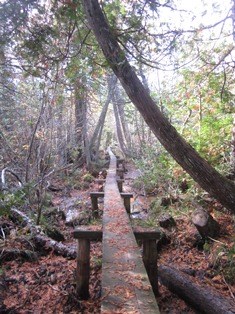
NPS "What we are protecting and preserving here, so far as it is possible and practical to do so, are actually the processes of nature in which the only permanent thing is change, - change which is permitted to take place with the very minimum of human guidance or control. The essence of place is its wild beauty..." Laws & Policies Quick LinksCompendium, Unmanned Aircraft, Firearms & Weapons, Camping, Collecting, Superintendent's CompendiumThe Superintendent’s Compendium is the summary of park specific rules implemented under 36 Code of Federal Regulations (36 CFR). It serves as public notice, identifies areas closed for public use, provides a list of activities requiring either a special use permit or reservation, and elaborates on public use and resource protection regulations. The Superintendent’s Compendium does not repeat regulations found in 36 CFR and other United States Codes and CFR Titles, which are enforced without further elaboration at the park level. Unmanned Aircraft Including HobbyistsUntil the NPS can determine whether specific uses of unmanned aircraft are appropriate and will not cause unacceptable impacts on park resources and values, Isle Royale National Park is closed to the use of these devices. The use of unmanned aircraft within the boundaries of the park has the potential to harm visitors, disturb wildlife, impact viewsheds, cause excessive noise, and interfere with other visitors' enjoyment of the area and may be incompatible with the purposes for which the park was established, including providing those opportunities for recreational, use and experiences which are compatible with the preservation of the park's wilderness character. A less restrictive approach is not appropriate at this time due the the impacts the devices could potentially present. Firearms and other weaponsLegislation CampingPermits are required for all overnight stays at campgrounds, cross-country sites, docks, or at anchor, regardless of group size or method of travel. Permits for parties of 1-6 people are obtained when your party arrives on the island or aboard the Ranger III Camping - GroupsFor groups, parties of seven to ten, advance reservations are required. If your group party exceeds ten participants, you must split into two groups, each independent and traveling on completely separate itineraries. Organizations may not have more than twenty people camping on the island at any one time and are limited to eighty people per year. CollectingAll natural objects including moose antlers, plants, driftwood, cultural or archaeological resources, greenstones, agates, datolites, and other minerals, including those found in Lake Superior may not be removed or disturbed. Removing, possessing, or disturbing park resources is prohibited. Picking small quantities of berries and wild edibles for personal consumption is permitted. Commercial GroupsOrganizations that charge trip participants a fee or that compensate members or trip leaders in any way are commercial groups under federal law. This applies to both non-profit and for-profit organizations. Commercial groups must apply for and receive a commercial use license to conduct trips in the park. There is a fee for this permit. Applications are only accepted between January 2 and May 15; contact the park for additional information. FireworksFireworks are prohibited. Human WasteNever defecate within 100 feet (at least 75 steps) of lakes, streams, trails, gullies, or campsites. In areas without outhouses, select a site that visitors are unlikely to discover. With a trowel, dig a "cathole" six to eight inches deep and four to six inches in diameter. Place fecal material in the hole. After use, cover the "cathole" with excavated soil. Pack out all used feminine-hygiene products. PetsDogs, cats, and other animals are not allowed. This includes pets on boats within the park boundaries, which extend 4.5 miles into Lake Superior from the outermost land areas of the park. Visitors bringing pets will be required to leave immediately. Pets disturb wildlife and can transmit disease, particularly to wolves. Special conditions apply to service or guide dogs. Contact the park for further information. Quiet HoursQuiet hours are between 10:00 pm and 6:00 am EDT, if people in adjacent campsites can hear your activities, you are being too loud. Respect WildlifeObserve, photograph, and enjoy park wildlife from a safe distance. If animals flee, become defensive, or change their natural activities in your presence, you are too close. Traps and NetsThe use or possession of traps and nets is prohibited. TrashPack-out everything you pack-in and if possible, dispose of it on the mainland. Leftover food, food-scraps, orange peels, nutshells, apple cores, twist-ties, candy wrappers, fishing line, and cigarette butts must be packed out. If you have food leftovers, either save and eat them later or pack them out. Do not burn, bury, or place trash, food scraps or garbage in outhouses. Help keep the park clean by packing-out what you pack-in. Waste Water DisposalCleaning Cookware Use a small strainer or screen to remove food bits from water and pack them out with your garbage. The remaining gray water should be scattered or broadcast over a wide area away from camps and water sources. Bathing/Cleaning Clothes Wheeled Vehicles and Wheeled DevicesWheeled vehicles (except for wheelchairs) or other mechanical forms of transportation are not allowed on trails. This includes bicycles and portaging devices. MarijuanaWhile recreational and medical marijuana are now legal in many states, marijuana remains illegal on federal lands including Isle Royale National Park. |
Last updated: May 23, 2023
